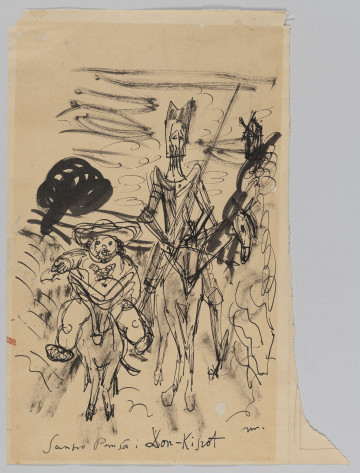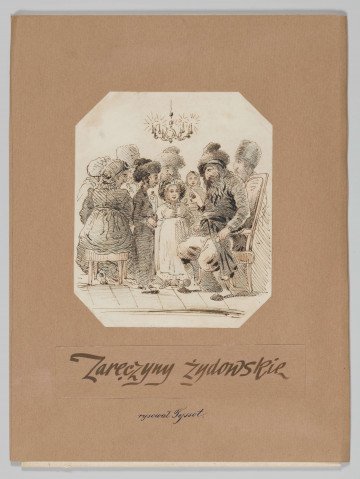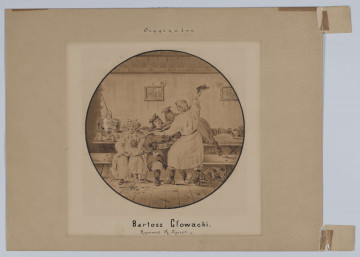
Sancho Pansa and Don Quixote
1930
National Museum in Lublin
Part of the collection: Genre scenes
Zygmunt Waliszewski (1897-1936) began his artistic education in Tiflis (Tbilisi). He continued it at the Academy of Fine Arts in Kraków in the ateliers of W. Weiss and J. Pankiewicz. In 1924, together with other members of the Paris Committee who were convinced of the superior role of "pure painting", he left for Paris to continue his education. Unlike other Kapists, for whom the essence of painting was seeing reality through colour, described as "colour games", Waliszewski treated the subject of a painting not only as a pretext for formal solutions. Fascinated with the works of great masters seen in the galleries of St. Petersburg, Moscow and the Louvre, he readily drew on the traditions of European painting, travestying them and translating them into his own, nonconventional language. In 1933, referring to the canvases of, among others, P. Veronese, Titian or J. Tintoretto, he created four versions of feasts Uczta u Benvenuta Celliniego [The Feast at Benvenuto Cellini's] ("Renaissance"), "Venetian", "large" and "carnival". According to B. Kowalska, "the figures in the Feasts [...] captured in rapid pivots of the body, always engaged in the action, are the perfect opposite of the figures in Renaissance paintings - static, distinguished, subordinated to the classical laws of composition. Colour plays a similar role: there - emphasising static, balanced by specific planes, harmonised into a general range subordinated to the dominant, while in Waliszewski's case - restless, vibrating with a wealth of devilishly bold contrasts" (B. Kowalska, Waliszewski - refleksje o twórczości [Waliszewski - Reflections on Art], "Nowe Sygnały" 1957, no. 41). The Lublin composition is a sketch for the "big feast" from the National Museum in Warsaw. Here, the artist uses painterly quotations with his usual freedom and humour. Departing from the religious message, he creates a scene of a joyful feast inscribed in a classical architectural decoration. The perspective shot of the table placed deep into the composition allows us to observe the relaxed poses of the guests enjoying wine and to convey the atmosphere of a carefree, uninhibited meeting.
Anna Hałata
Author / creator
Dimensions
cały obiekt: height: 22,1 cm, width: 35,3 cm
Object type
drawing
Technique
drawing and painting technique
Material
paper, ink, tempera, ink, pencil, ink, ink
Creation time / dating
Creation / finding place
Owner
The National Museum in Lublin
Identification number
Location / status

1930
National Museum in Lublin

National Museum in Lublin

1865
National Museum in Lublin
DISCOVER this TOPIC
Museum of King Jan III's Palace at Wilanów
DISCOVER this PATH
Educational path